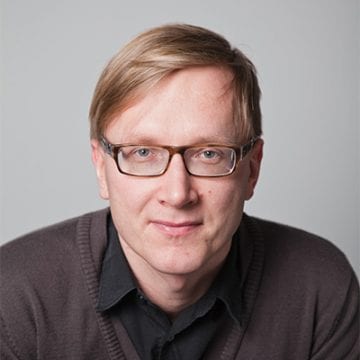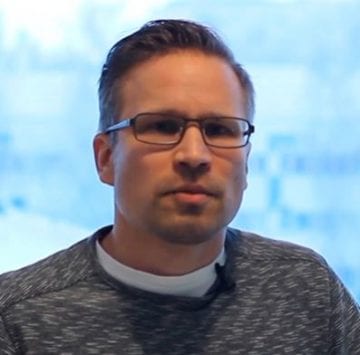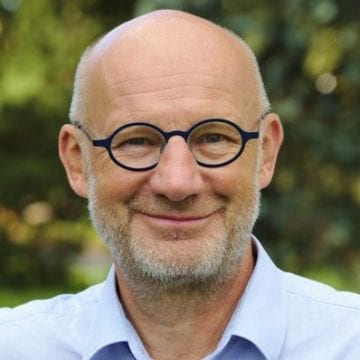INVEST Sociology
PIs

Jani Erola
Head of Flagship
Professor of Sociology
University of Turku
Contact
CV
Personal webpage

Mikko Niemelä
Professor of Sociology
University of Turku
Contact
CV

Olli Kangas
Professor of Practice (Sociology)
University of Turku
Contact
CV
Research Projects
Intergenerational Cumulative Disadvantage and Resource Compensation (INDIRECT)
The INDIRECT project studies intergenerational inheritance of socioeconomic attainment, with a focus on the idea of resource compensation. Resource compensation can be seen to come into play when families lose resources and attempt to compensate for these losses either through the use of other resources, which have not been lost, or with the resources of other family members or neighbours. By extending the idea of resource compensation to a broad range of situations in which resource compensation may occur, the INDIRECT projects aims to advance the theory behind and empirical evidence for intergenerational socioeconomic inheritance
Tackling Inequalities in Time of Austerity (TITA)
The consortium project Tackling Inequalities in Time of Austerity (TITA) provides a novel and comprehensive analysis of long-term trends in financial inequalities, inequalities in health and well-being and inequalities of opportunities over the life course, and their links to the moral and political climate in society. Thus, it analyses together multiple forms of inequality (such as income, wealth, consumption, education, family dynamics, health, mortality, trust and deprivation) and their interrelationships.
It introduces a holistic framework for mapping the most crucial target groups for policy measures and ensures feasible policy recommendations for reducing inequalities in society for decades to come. It provides tools for policy-learning, both through within-country studies and cross-national comparisons. It exhausts unique longitudinal and time-series data and top-of-the-art statistical methods to fully explore mechanisms of inequality.
Falling fertility and the inequalities involved (NEFER)
NEFER focuses on fertility dynamics and their links to social inequalities, as manifested in the case of Finland and other Nordic countries, which are often seen as forerunners of family change and in developing social and gender equality. These countries are experiencing an unexpected decline in fertility, increases in childlessness, and fundamental shifts in socioeconomic disparities in family formation, challenging the established understanding of the drivers of fertility changes and the underlying mechanisms guiding family formation.
NEFER seeks to identify the mechanisms behind this fertility decline, increase in childlessness and the shifting social inequalities involved, as seen in Finland and the other Nordic countries.
NEFER is a research project funded in 2019–23 by the Academy of Finland. The PI and team leader is Marika Jalovaara. The research is carried out at the University of Turku, in the INVEST research flagship.
Intergenerational relations: from single discipline paradigm towards interdisciplinarity (IntRel)
Previous social science studies have been unable to successfully explain why intergenerational family support is unequally distributed across generations. Combining theories and findings from different fields of study, Intergenerational relations: from single discipline paradigm towards interdisciplinarity (IntRel) project will provide an evolutionarily informed sociological model helping to explain the complex nature of intergenerational relations. The project will show whether and how evolutionary relevant factors still shape human behaviour in contemporary affluent societies and in which circumstances the societal development may override the effect of evolutionary rooted tendencies.
IntRel project is funded by the Academy of Finland in 2019–2023. The PIs of the project are Mirkka Danielsbacka and Antti O. Tanskanen. IntRel is carried out at the University of Turku and it is a part of the Academy of Finland’s flagship Invest.
Children of immigrants, language and integration across Europe (CILIE)
The project focuses on the role of language spoken at home in the integration processes of immigrants and their children. The objective is to further develop theories of integration with respect to the language used at home and bilingualism. One specific aim of the project is to identify the conditions under which the benefits of continued use of the language of origin at home, which have been found for psychosocial and cognitive outcomes, are extended to other dimensions of integration.
The project is divided into three parts, which examine
- the life-course and contextual factors associated with different language choices,
- the relationship between language used at home and children’s integration outcomes and its variation according to family characteristics, and
- the contextual factors that influence the relationship between language used at home and integration. The project uses cross-national and longitudinal survey data from a number of different European countries.
Director of the project is Elina Kilpi-Jakonen.
Comparative studies on child maintenance policies, family complexity and equalities (ChildSupport)
Funding:
Academy of Finland, Academy Research Fellow, 1.9.2016 – 31.8.2021
Family relationships are recognized to be increasingly complex in many Western industrialized countries. Children are increasingly raised in single-parent families, stepfamilies, and by cohabiting rather than married couples. Furthermore, members of a family may differ regarding biological ties and legal relationships. This ambiguity in family roles and responsibilities and increase in joint legal custody, flexible visitation arrangements, and dual residence agreements affects the character, composition, and resource sharing within families and between the welfare state and families. As family relationships become more complex, it raises a question about how child maintenance policy should address complex family situations. This research attempts to answer these questions by comparing child maintenance policies across countries and demonstrating how different welfare states deal with family complexity.
Methodology
Vignettes
This study employs the vignette method. Vignettes are hypothetical cases that are intended to highlight a policy and how it works in particular family situations. Vignette scenarios are used to allow a standardized comparison of how country-specific child maintenance schemes respond to relatively common patterns of parental separation, re-partnering, and changes in household and paid work circumstances.
The study will recruit national informants from OECD countries, and they will each complete a questionnaire with different kinds of vignettes. National informants will be mainly academics and will be recruited to report the child maintenance provisions in their own countries.
Informants will be sent a questionnaire containing closed questions and structured elements of child maintenance policies in their country, including vignettes, where informants are invited to describe what would happen in standard hypothetical cases in the given circumstances. Vignettes will provide both qualitative and quantitative information.
Luxembourg Income Study
There will be a secondary data analysis of the Luxembourg Income Study. The aim is to analyse the outcomes of child maintenance policy in terms of receipt, amount, child poverty, and the paying potential of those paying maintenance – on a comparable basis.
If you require further information about the project, please contact :
Dr. Mia Hakovirta, Academy Research Fellow
Mari Haapanen, Research Assistant
Towards well-informed decisions: Predicting long-term effects of policy reforms on life trajectories PREDLIFE
The goal of our project is to understand how life paths unfold over time and how these trajectories are shaped by policy interventions and reforms. In the statistics subproject we will develop a methodological framework for modelling, predicting, and visualizing how policy interventions affect complex social processes. In the sociology subproject we will use high-quality register data covering the full populations of Finland and Sweden to better understand the interplay of work and family over the life course and the impacts of parental leave policies on couples’ life trajectories.
Kin relations across generations and over the life course (KinCross)
Antti O. Tanskanen and Mirkka Danielsbacka‘s “Kin relations across generations and over the life course” (KinCross) project will study the family life of two generations: Finnish baby boomers (born between 1945 and 1950) and their adult children (born between 1964 and 1999).
KinCross is divided into three sub-studies conducted with the Generational Transmissions in Finland (Gentrans) dataset. The first sub-study will investigate how the use of modern communication technology is associated with kin contact and support. The second will utilise the panel dimension of Gentrans dataset to investigate longitudinal changes related to kin relations before, during and after the end of the economic recession. The third part will employ the retrospective module of the Gentrans dataset and consider family arrangements during childhood to study how the conditions in early, middle and late childhood shape kin ties over the life course.
The aim is to explain the complex nature of family relations and changes related to them. Novel and timely information on the strength of kin relations across the individual life course and over generations will be provided, with due consideration to societal changes.
KinCross project is funded by the Academy of Finland in 1.9.2020–30.8.2024.
Economic burden of medicines on households: De-commodification and re-commodification (DE-RE) (2020-2023)
Funding: Academy of Finland, postdoctoral researcher, 1.9.2020‒31.8.2023
This research project takes a novel approach in the field of pharmaceutical policy, by focusing on the role of the institutional features and policies and thus increasing the understanding of the multi-level mechanisms conditioning access to medicines. The study explores the ability of pharmaceutical systems to protect patients from financial burden of medicines, and the effects of austerity policies on this ability. In addition, unlike previous studies in the pharmaceutical policy settings, the project also aims to address the complimentary effects of different types of social provision. In the first part, the project examines how financial burden of medicines develops in Finland over time in a period characterised by economic downturn and subsequent austerity policies. The comparative part assesses the associations between the institutional features of pharmaceutical systems and economic burden of medicines in the European Union.
DE-RE is funded by the Academy of Finland and the PI of the project is Katri Aaltonen. DE-RE is conducted at the University of Turku and it is a part of the Academy of Finland’s flagship INVEST.
